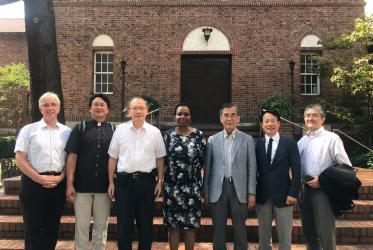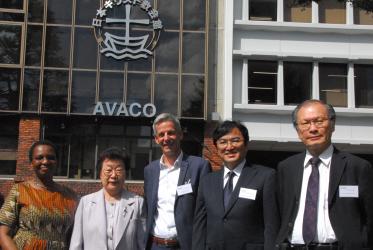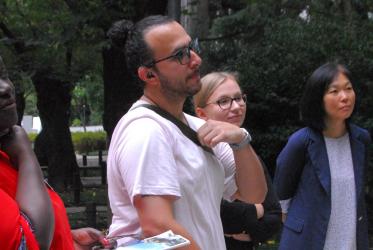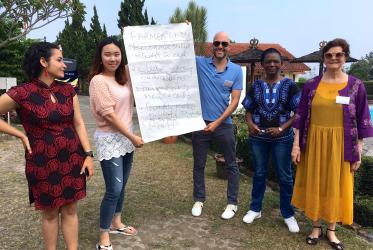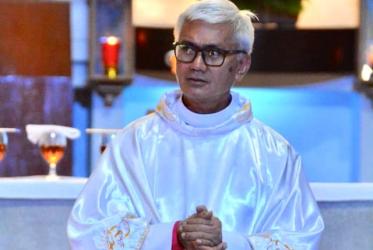Displaying 81 - 100 of 268
The cry of the Papuans in Indonesia
14 November 2019
In Japan, spirit of koinonia deepens
26 September 2019
WCC gravely concerned for West Papua
25 September 2019
In Japan, theologians reflect on today’s global manifestations of racism
18 September 2019
WCC organises event on “The Human Rights Situation in the Philippines”
18 September 2019
Pilgrims walk with minorities in Japan
16 September 2019
In Japan, indigenous and ecumenical youth call for action against racism
12 September 2019
Wirtschaftsseminar öffnet Teilnehmenden aus aller Welt die Augen
02 September 2019
School on economics proves “eye-opening” across globe
02 September 2019
“Economy of life” lifted up at special school in Indonesia
22 August 2019
WCC represented at G20 Interfaith forum in Tokyo
13 June 2019


